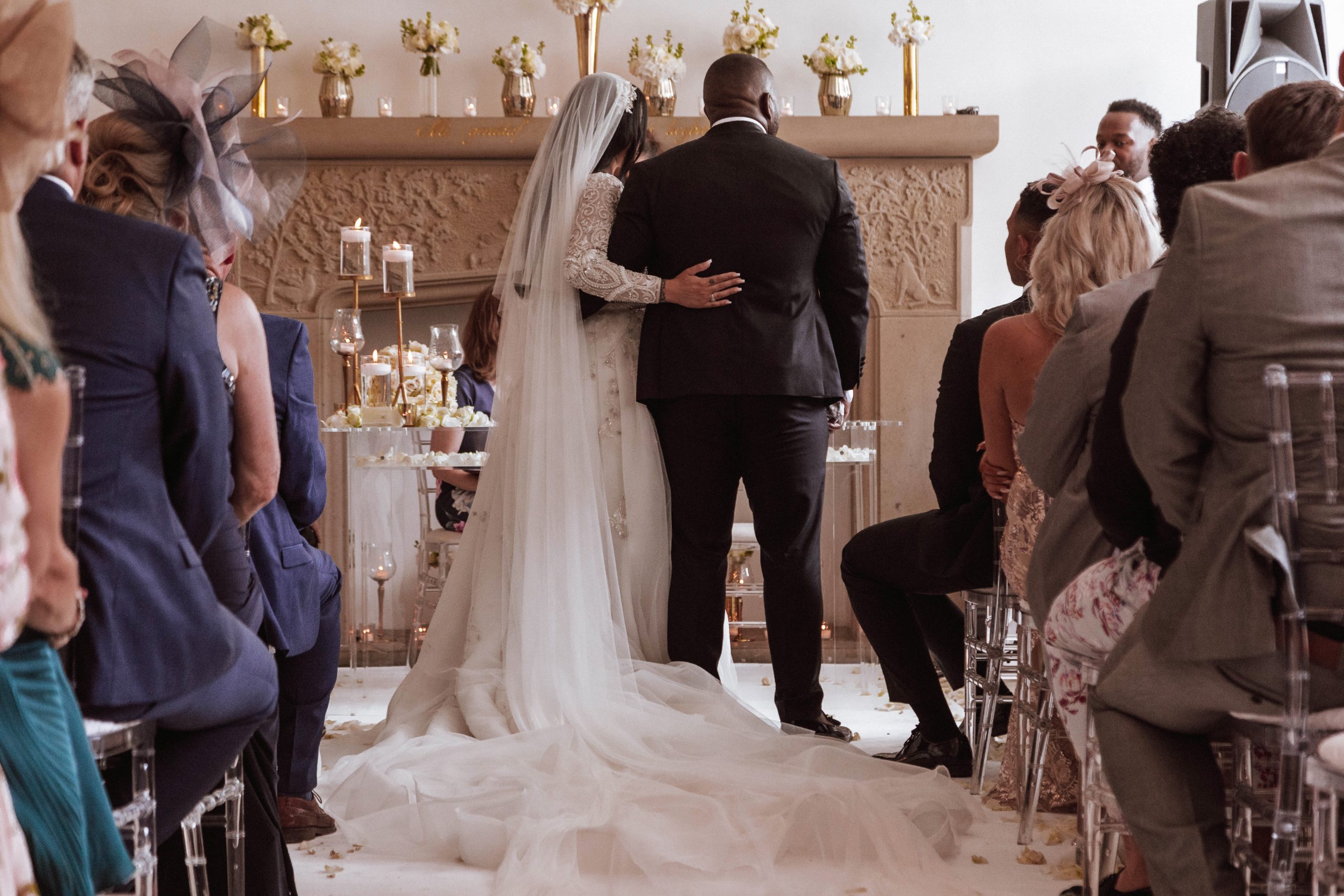1. Registrar-Led Ceremonies
This is the most popular choice for couples marrying at Tyn Dwr Hall.
What is it?
A civil ceremony carried out by an official Registrar. It’s completely non-religious but still deeply meaningful — and most importantly, legally binding.
How does it work?
Registrars are booked through the local council — for Tyn Dwr Hall, that’s Denbighshire County Council. You’ll need to contact them directly to book your date and time (we’re happy to guide you through the process). Don’t forget you’ll also need to give notice of marriage, which is a legal requirement and involves attending a short appointment at your local register office.
Typical costs?
For ceremonies at Approved Premises like Tyn Dwr Hall, the fees are as follows:
-
Provisional booking fee: £175 (non-refundable, deducted from the final fee)
-
Ceremony fees:
-
Monday to Thursday (excluding bank holidays): £570
-
Friday and Saturday (excluding bank holidays): £600
-
Sunday and bank holidays: £685
-
-
Giving notice: £42 per person
-
Marriage certificate: £12.50 each
Please note that fees are subject to change, so it’s advisable to check the latest information on the Denbighshire County Council website.
What can you include?
Registrar-led ceremonies follow a structured format. You can personalise with readings, music, and your own (non-religious) vows — but there are some rules. You can’t include any religious content such as hymns, prayers, or blessings. This also means no references to God, scripture, or religious rituals.
Registrars are lovely, warm people, but they are also representatives of UK law — so they must follow strict guidelines during the legal ceremony

